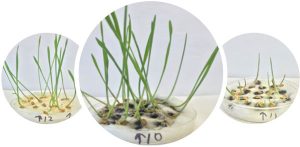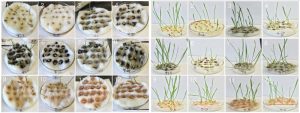ALEXANDRIA, Va. — December 15, 2017 — The Angelica linen, uniform and facility services chain’s laundries in Orange and Sacramento, Calif., and Pawtucket, R.I., are the organization’s latest recipients of Hygienically Clean (HC) Healthcare certification. This designation reflects their commitment to best management practices (BMPs) in laundering as verified by on-site inspection and their capability to produce hygienically clean textiles as quantified by ongoing microbial testing.
The certification confirms Angelica’s dedication to infection prevention, compliance with recognized industry standards and processing healthcare textiles using BMPs as described in its quality assurance documentation, a focal point for Hygienically Clean inspectors’ evaluation. The independent, third-party inspection must also confirm essential evidence that:
- Employees are properly trained and protected;
- Managers understand regulatory requirements;
- OSHA-compliant; and
- Physical plant operates effectively.
Angelica now has 21 TRSA Hygienically Clean Healthcare certified facilities, the most of any laundry chain in the United States. In addition to the three newest designees, Angelica has secured the certification at facilities in Phoenix, Ariz.; Colton, Fresno, Pittsburg and San Fernando, Calif.; Holly Hill and Safety Harbor, Fla.; Rockmart, Ga.; Chicago, Ill.; Worcester, Mass.; Durham, N.C.; Henderson, Nev.; Batavia, N.Y.; Lorain, Ohio; Columbia, S.C.; Memphis and Ooltewah, Tenn.; and Austin, Texas. Angelica is in the process of certifying all of its laundries.
Certified facilities pass three rounds of outcome-based microbial testing, indicating that their processes are producing Hygienically Clean Healthcare textiles and zero presence of yeast, mold and harmful bacteria. To maintain their certification, laundry plants must pass quarterly testing to ensure that as laundry conditions change, such as water quality, textile fabric composition and wash chemistry, laundered product quality is consistently maintained.
This process eliminates subjectivity by focusing on outcomes and results that verify textiles cleaned in these facilities meet appropriate hygienically clean standards and BMPs for hospitals, surgery centers, medical offices, nursing homes and other medical facilities.
Hygienically Clean Healthcare certification acknowledges laundries’ effectiveness in protecting healthcare operations through testing and inspections that scrutinize quality control procedures in textile services operations related to the handling of textiles containing blood and other potentially infectious materials.
Certified laundries use processes, chemicals and BMPs acknowledged by the federal Centers for Disease Control and Prevention (CDC), Centers for Medicare and Medicaid Services, Association for the Advancement of Medical Instrumentation, American National Standards Institute and others. Introduced in 2012, Hygienically Clean Healthcare brought to North America the international cleanliness standards for healthcare linens and garments used worldwide by the Certification Association for Professional Textile Services and the European Committee for Standardization.
Objective experts in epidemiology, infection control, nursing and other healthcare professions work with Hygienically Clean launderers to ensure the certification continues to enforce the highest standards for producing clean healthcare textiles.
“Congratulations to Angelica on their certifications,” said Joseph Ricci, TRSA president and CEO. “This achievement proves their ongoing commitment to infection prevention and that their laundry facilities take every step possible to prevent human illness.”
Posted December 15, 2017
Source: TRSA






